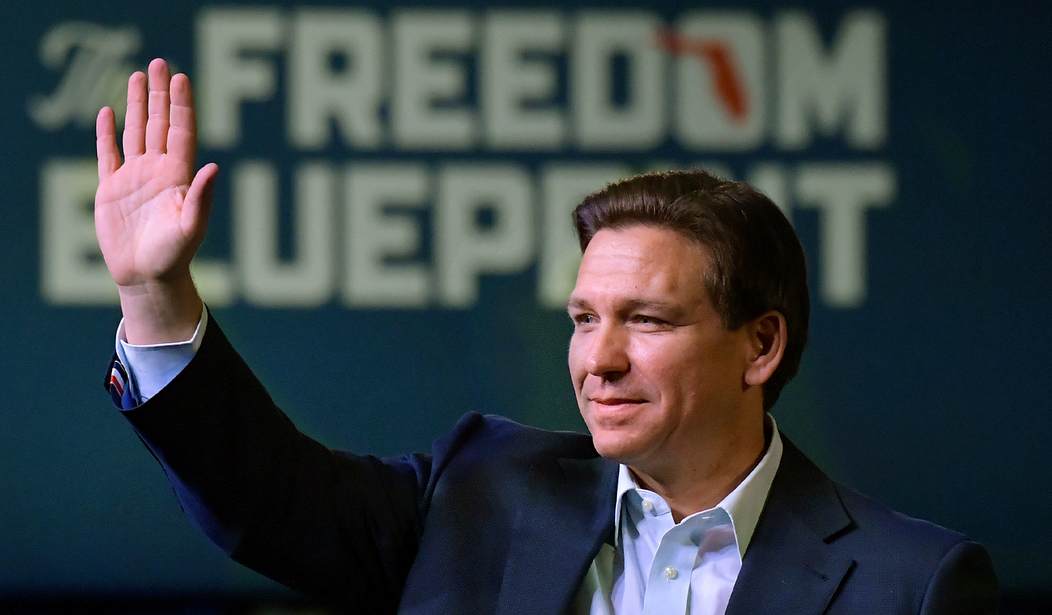Florida’s Senate Bill 214 has already had a major impact on the gun store-specific merchant category codes put in place by the International Standardization Organization last year, but now that Gov. Ron DeSantis has signed the legislation into law it will be an even bigger bulwark against the potential tracking of purchases from FFLs.
Shortly after the bill was introduced, major credit card companies from Visa to American Express announced that they were hitting the pause button on their adoption of the MCCs, and they named the Florida legislation as one of several factors influencing their decision. As Michael Bloomberg’s pet news outlet reluctantly reported at the time
“There are bills advancing in several states related to the use of this new code,” a spokesman for Mastercard said in a statement Thursday. If passed, the proposals would create an “inconsistency” in how the code is applied by merchants and others, he said. “It’s for that reason that we have decided to pause work on the implementation of the firearms-specific MCC.”
Visa also took a pause because of the “significant confusion and legal uncertainty” the legislative proposals have created, according to a spokesperson.
…
“MCCs are one data point that would not provide any insight on specific purchases or resolve larger issues,” the Mastercard spokesman said. “We are committed to working with policymakers and elected officials to contribute to constructive solutions that address the gun violence issue, while respecting important constitutional rights and protections for lawful activities.”
Now that SB 214 is enshrined into law, any credit card company that tries to implement the merchant category codes for firearm retailers is subject to a $10,000 fine for each use of the code, at least once the law becomes effective on July 1st. Hopefully the statute will never have to be put to use, but with anti-gun activists still flipping out over the apparent demise of one of their pet projects I doubt we’ve seen the last of their attempts to force implementation of the codes.
Those activists claim that by adopting the codes, credit card companies would be able to identify suspicious transactions and potentially prevent violent crimes from taking place, but the companies themselves largely rejected that argument, pointing out that specific purchases would not be identified, merely the location and amount that was spent. I think that the codes themselves were really only a first step, and once they’d been adopted and put into force the anti-gunners would have come right back for more; demanding that the companies be able to have a look-see at exactly what you bought the next time you use a card at your local gun shop.
But if they can’t implement step one of their plan, it makes it impossible for them to execute phase two.
During a news conference in Fort Myers, the governor said the legislation is stopping companies from raising red flags about people who are exercising their constitutional rights.
“They can tag you or flag you as being somebody that somehow should be looked at and that’s just fundamentally wrong,” DeSantis said.
House sponsor John Snyder, R-Stuart, said the proposal would protect the ability of Second Amendment supporters “to purchase and spend their money freely without fear of reprisal.”
The National Shooting Sports Foundation was quick to weigh in with praise for DeSantis and Florida lawmakers, with senior vice president and general counsel Larry Keane describing the MCCs as “a ‘woke’ initiative borne from the efforts of antigun Wall Street banks and their gun control allies in the media to use lawful private transactions as a means to usher in gun control.”
Keane went on to laud DeSantis for “ensuring that Floridians won’t be held captive by the radical ‘woke’ antigun agenda that seeks to weaponize credit cards in gun owners’ wallets against them,” adding that “gun owners should worry about what’s in their wallet, not who’s in their wallet.”
Amen to that, and thanks to Gov. DeSantis and the Florida legislature for standing up for the rights of Floridians to exercise their fundamental freedoms without fear of Big Brother or big banks scrutinizing their purchases and labeling them “suspicious” for exercising their right to keep, bear, and buy firearms and ammunition.
Read the full article here


